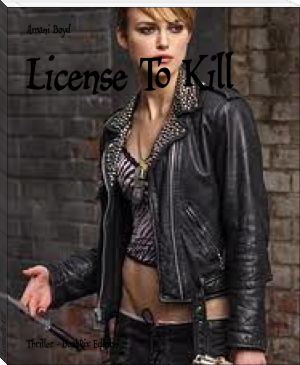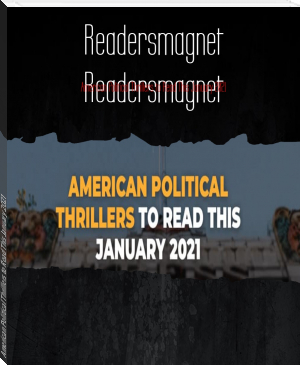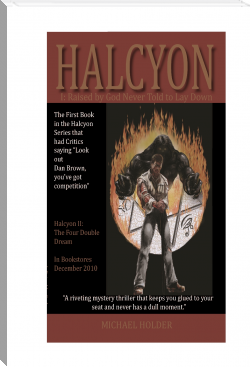Crisis Management: Beyond the Call of Duty by Craig A. McDonough (best inspirational books .txt) 📕

- Author: Craig A. McDonough
- Performer: -
Book online «Crisis Management: Beyond the Call of Duty by Craig A. McDonough (best inspirational books .txt) 📕». Author Craig A. McDonough
When it branches out in different directions, it shows that parties have been sent to collect firewood. A few clouds of dust moving to and fro signify that the army is encamping.
[Chang Yu says: "In apportioning the defences for a cantonment, light horse will be sent out to survey the position and ascertain the weak and strong points all along its circumference. Hence the small quantity of dust and its motion."]
24. Humble words and increased preparations are signs that the enemy is about to advance.
["As though they stood in great fear of us," says Tu Mu. "Their object is to make us contemptuous and careless, after which they will attack us." Chang Yu alludes to the story of T’ien Tan of the Ch’i-mo against the Yen forces, led by Ch’i Chieh. In ch. 82 of the Shih Chi we read: "T’ien Tan openly said: ‘My only fear is that the Yen army may cut off the noses of their Ch’i prisoners and place them in the front rank to fight against us; that would be the undoing of our city.’ The other side being informed of this speech, at once acted on the suggestion; but those within the city were enraged at seeing their fellow-countrymen thus mutilated, and fearing only lest they should fall into the enemy’s hands, were nerved to defend themselves more obstinately than ever. Once again T’ien Tan sent back converted spies who reported these words to the enemy: "What I dread most is that the men of Yen may dig up the ancestral tombs outside the town, and by inflicting this indignity on our forefathers cause us to become faint-hearted.’ Forthwith the besiegers dug up all the graves and burned the corpses lying in them. And the inhabitants of Chi-mo, witnessing the outrage from the city-walls, wept passionately and were all impatient to go out and fight, their fury being increased tenfold. T’ien Tan knew then that his soldiers were ready for any enterprise. But instead of a sword, he himself took a mattock in his hands, and ordered others to be distributed amongst his best warriors, while the ranks were filled up with their wives and concubines. He then served out all the remaining rations and bade his men eat their fill. The regular soldiers were told to keep out of sight, and the walls were manned with the old and weaker men and with women. This done, envoys were dispatched to the enemy’s camp to arrange terms of surrender, whereupon the Yen army began shouting for joy. T’ien Tan also collected 20,000 ounces of silver from the people, and got the wealthy citizens of Chi-mo to send it to the Yen general with the prayer that, when the town capitulated, he would not allow their homes to be plundered or their women to be maltreated. Ch’i Chieh, in high good humor, granted their prayer; but his army now became increasingly slack and careless. Meanwhile, T’ien Tan got together a thousand oxen, decked them with pieces of red silk, painted their bodies, dragon-like, with colored stripes, and fastened sharp blades on their horns and well-greased rushes on their tails. When night came on, he lighted the ends of the rushes, and drove the oxen through a number of holes which he had pierced in the walls, backing them up with a force of 5000 picked warriors. The animals, maddened with pain, dashed furiously into the enemy’s camp where they caused the utmost confusion and dismay; for their tails acted as torches, showing up the hideous pattern on their bodies, and the weapons on their horns killed or wounded any with whom they came into contact. In the meantime, the band of 5000 had crept up with gags in their mouths, and now threw themselves on the enemy. At the same moment a frightful din arose in the city itself, all those that remained behind making as much noise as possible by banging drums and hammering on bronze vessels, until heaven and earth were convulsed by the uproar. Terror-stricken, the Yen army fled in disorder, hotly pursued by the men of Ch’i, who succeeded in slaying their general Ch’i Chien…. The result of the battle was the ultimate recovery of some seventy cities which had belonged to the Ch’i State."]
Violent language and driving forward as if to the attack are signs that he will retreat.
25. When the light chariots come out first and take up a position on the wings, it is a sign that the enemy is forming for battle.
26. Peace proposals unaccompanied by a sworn covenant indicate a plot.
[The reading here is uncertain. Li Ch’uan indicates "a treaty confirmed by oaths and hostages." Wang Hsi and Chang Yu, on the other hand, simply say "without reason," "on a frivolous pretext."]
27. When there is much running about
[Every man hastening to his proper place under his own regimental banner.]
and the soldiers fall into rank, it means that the critical moment has come.
28. When some are seen advancing and some retreating, it is a lure.
29. When the soldiers stand leaning on their spears, they are faint from want of food.
30. If those who are sent to draw water begin by drinking themselves, the army is suffering from thirst.
[As Tu Mu remarks: "One may know the condition of a whole army from the behavior of a single man."]
31. If the enemy sees an advantage to be gained and makes no effort to secure it, the soldiers are exhausted.
32. If birds gather on any spot, it is unoccupied.
[A useful fact to bear in mind when, for instance, as Ch’en Hao says, the enemy has secretly abandoned his camp.]
Clamour by night betokens nervousness.
33. If there is disturbance in the camp, the general’s authority is weak. If the banners and flags are shifted about, sedition is afoot. If the officers are angry, it means that the men are weary.
[Tu Mu understands the sentence differently: "If all the officers of an army are angry with their general, it means that they are broken with fatigue" owing to the exertions which he has demanded from them.]
34. When an army feeds its horses with grain and kills its cattle for food,
[In the ordinary course of things, the men would be fed on grain and the horses chiefly on grass.]
and when the men do not hang their cooking-pots over the camp-fires, showing that they will not return to their tents, you may know that they are determined to fight to the death.
[I may quote here the illustrative passage from the Hou Han Shu, ch. 71, given in abbreviated form by the P’ei Wen Yun Fu: "The rebel Wang Kuo of Liang was besieging the town of Ch’en- ts’ang, and Huang-fu Sung, who was in supreme command, and Tung Cho were sent out against him. The latter pressed for hasty measures, but Sung turned a deaf ear to his counsel. At last the rebels were utterly worn out, and began to throw down their weapons of their own accord. Sung was not advancing to the attack, but Cho said: ‘It is a principle of war not to pursue desperate men and not to press a retreating host.’ Sung answered: ‘That does not apply here. What I am about to attack is a jaded army, not a retreating host; with disciplined troops I am falling on a disorganized multitude, not a band of desperate men.’ Thereupon he advances to the attack unsupported by his colleague, and routed the enemy, Wang Kuo being slain."]
35. The sight of men whispering together in small knots or speaking in subdued tones points to disaffection amongst the rank and file.
36. Too frequent rewards signify that the enemy is at the end of his resources;
[Because, when an army is hard pressed, as Tu Mu says, there is always a fear of mutiny, and lavish rewards are given to keep the men in good temper.]
too many punishments betray a condition of dire distress.
[Because in such case discipline becomes relaxed, and unwonted severity is necessary to keep the men to their duty.]
37. To begin by bluster, but afterwards to take fright at the enemy’s numbers, shows a supreme lack of intelligence.
[I follow the interpretation of Ts’ao Kung, also adopted by Li Ch’uan, Tu Mu, and Chang Yu. Another possible meaning set forth by Tu Yu, Chia Lin, Mei Tao-ch’en and Wang Hsi, is: "The general who is first tyrannical towards his men, and then in terror lest they should mutiny, etc." This would connect the sentence with what went before about rewards and punishments.]
38. When envoys are sent with compliments in their mouths, it is a sign that the enemy wishes for a truce.
[Tu Mu says: "If the enemy open friendly relations be sending hostages, it is a sign that they are anxious for an armistice, either because their strength is exhausted or for some other reason." But it hardly needs a Sun Tzŭ to draw such an obvious inference.]
39. If the enemy’s troops march up angrily and remain facing ours for a long time without either joining battle or taking themselves off again, the situation is one that demands great vigilance and circumspection.
[Ts’ao Kung says a manœuver of this sort may be only a ruse to gain time for an unexpected flank attack or the laying of an ambush.]
40. If our troops are no more in number than the enemy, that is amply sufficient; it only means that no direct attack can be made.
[Literally, "no martial advance." That is to say, cheng tactics and frontal attacks must be eschewed, and stratagem resorted to instead.]
What we can do is simply to concentrate all our available strength, keep a close watch on the enemy, and obtain reinforcements.
[This is an obscure sentence, and none of the commentators succeed in squeezing very good sense out of it. I follow Li Ch’uan, who appears to offer the simplest explanation: "Only the side that gets more men will win." Fortunately we have Chang Yu to expound its meaning to us in language which is lucidity itself: "When the numbers are even, and no favourable opening presents itself, although we may not be strong enough to deliver a sustained attack, we can find additional recruits amongst our sutlers and camp-followers, and then, concentrating our forces and keeping a close watch on the enemy, contrive to snatch the victory. But we must avoid borrowing foreign soldiers to help us." He then quotes from Wei Liao Tzŭ, ch. 3: "The nominal strength of mercenary troops may be 100,000, but their real value will be not more than half that figure."]
41. He who exercises no forethought but makes light of his opponents is sure to be captured by them.
[Ch’en Hao, quoting from the Tso Chuan, says: "If bees and scorpions carry poison, how much more will a hostile state! Even a puny opponent, then, should not be treated with contempt."]
42. If soldiers are punished before they have grown attached to you, they will not prove submissive; and, unless submissive, then will be practically useless. If, when the soldiers have become attached to you, punishments are not enforced, they will still be useless.
43. Therefore soldiers must be treated in the first instance with humanity, but kept under control by means of iron discipline.
[Yen Tzŭ [B.C. 493] said of Ssu-ma Jang-chu: "His civil virtues endeared him to the people; his martial prowess kept his enemies in awe." Cf. Wu Tzŭ, ch. 4 init.: "The ideal commander unites culture with a warlike temper; the profession of arms requires a combination of hardness and tenderness."]
This is a certain





Comments (0)